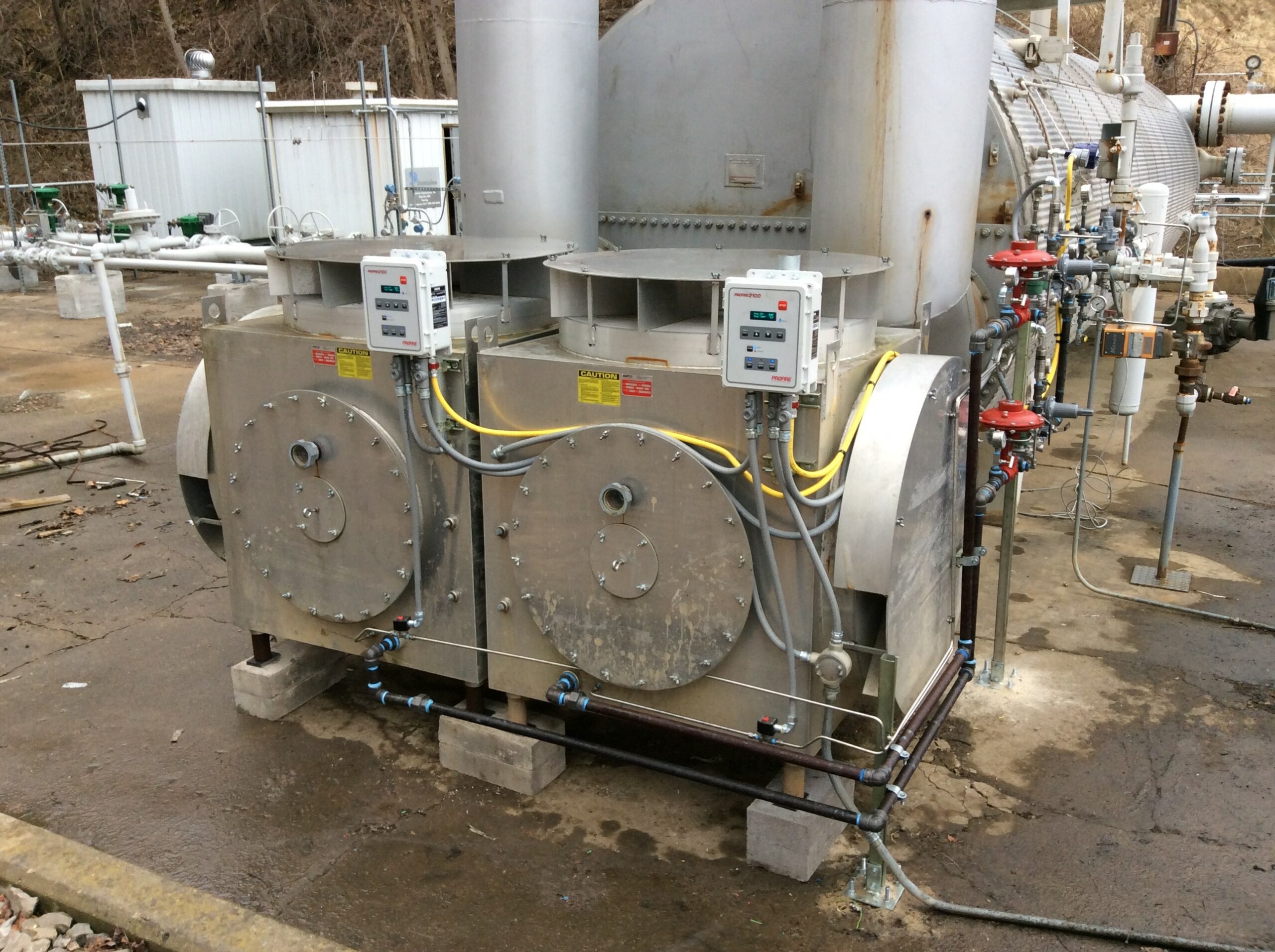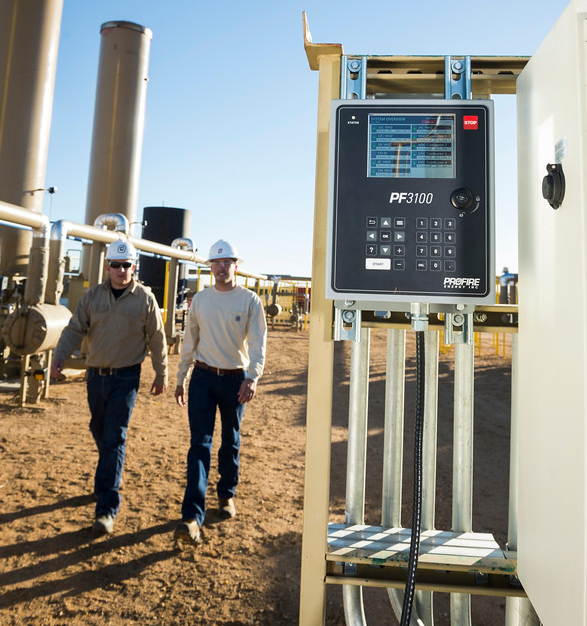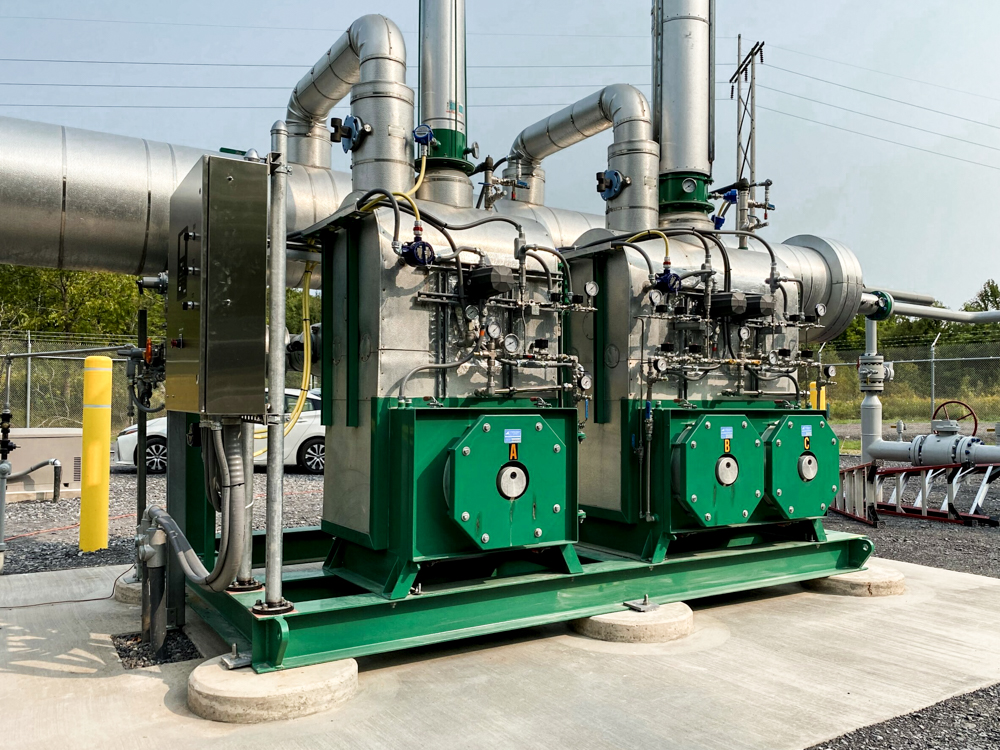A BMS (burner management system) is a critical piece of equipment in any industrial facility and is responsible for ensuring heating appliances run safely and reliably. The lifespan of a burner management system and its related components are dependent on a number of factors including its use, environment, and maintenance schedule. Timely replacement of parts and eventual upgrading the product is essential for continuous accident-free operations. Profire’s burner management systems are used in many industries where the overall efficiency, reliability, and safety of heating processes are required. Some of the industries using our products include:
- Oil and Gas
- Power Generation
- Mining
- BioTech
- Petrochemical and Refining
- Renewables
- Landfill
- Agriculture
- Municipal
- Food and Beverage
- Construction and Infrastructure
- Pulp and Paper
At Profire we offer purpose-built systems that include a controller, fuel train, and burner. Our technically advanced products are composed of the highest quality materials available, ensuring they continue to meet regulations. In fact, many of our burner management systems that were installed more than 20 years ago are still effectively running onsite today. As part of our commitment to deliver dependable and quality solutions, we offer effective maintenance schedules through our Field Service team. During these scheduled appointments, our team will inspect, clean, and determine if your BMS and its related components are approaching the end of their useful life cycle or if replacement parts are required. By being proactive with the servicing of your burner management system, you will increase its overall lifespan while also ensuring it continues to operate safely.
Can a burner management system fail due to age?
Most BMS are designed with a lifespan of 10 years, however, with proper maintenance they can effectively be used for 20-plus years. Many of our burner management systems installed over 20 years ago are still operating on-site today. There are several contributing factors that affect a BMS’s lifespan such as the industry and application in which it is being used, and the ambient environment it is being exposed to. For example, if you’re running an oil-fired boiler with water tube boilers, and the burners are all fired by natural gas, the wear on your system will be extremely less than if it were using anthracite coal to fire the burners. When designing a complete solution, these key factors are considered by our team of experts to ensure you receive the most reliable solution for your heating application.
Environmental factors
BMS’s are used in many industrial settings such as processing plants and remote well sites. This causes exposure to several environmental factors including fluctuating ambient temperatures, humidity, mechanical forces, pressure, acoustics, and vibrations. These variants can cause a number of complications within the system if it isn’t properly maintained. Sophisticated burner management systems have many electronic connections (i.e. expansion cards) that also need to be properly enclosed to protect them from environmental factors. Using specific products including foams and sprays in addition to Profire’s stainless steel enclosures will protect against humidity and water-creep. Circuit boards and display assemblies can be treated with conformal coating or RTV to protect them from moisture, temperature cycles and corrosion. The User Interface keypad fixed on the enclosure is also exposed to degradation from environmental factors. The operational factors that affect BMS electronics are the applied current and voltage loads. Specifically, the load magnitudes, load rates, load range and duration of the loads affect the BMS lifespan. Taking steps in preventative maintenance is key to maximizing the efficiency and lifespan of your system.
Proper maintenance of components
We offer a 12-Point Service that includes visual equipment inspections (i.e. fuel trains and flame arrestors), cleaning, orifice and fire tube checks, and testing the appliance to ensure all shutdowns and startups are working effectively. Taking a proactive approach is imperative to increasing the longevity of your equipment while maintaining the safety of your site.
Upgrading software
Our burner management systems are always evolving as our team develops new technology. It is imperative to maintain the firmware upgrades on your system to ensure it is running at its top efficiency.
Is there a best time to replace your burner management system?
There are a few tell-tale signs that your BMS and its components are fatigued and are reaching the end of their lifespan. If the system begins to malfunction with consistent fails or unexpected shutoffs; this can be the result of an aging BMS. It can also be related to the other components of your solution. These occurrences can include low-pressure readings, signs of rust, or leaks that can be caused by malfunctioning or aging fuel trains and flame arrestors.
If any of these occurrences begin to take place, it is time to reach out to a Profire expert and have your complete system inspected before it causes a complete shutdown. By having your system inspected you can determine if the problem is related to defective components or improper configuration and commissioning. Once the cause of the fatigue is pinpointed you can decide whether it is time to replace your entire system or if a tune-up is all it requires.
Check out these stories from customers who have upgraded and replaced old burners.


